Programmi di educazione in contesti di emergenza. L'esperienza di Save the Children. Approcci, metodologie, standard di intervento
Pubblicazioni correlate
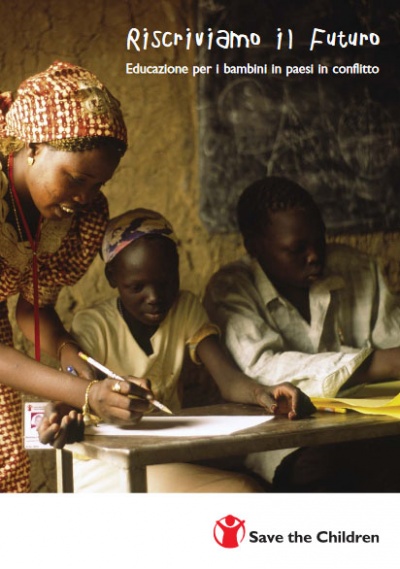
Riscriviamo il Futuro - Educazione per i bambini in paesi in conflitto
Anno di pubblicazione
2006
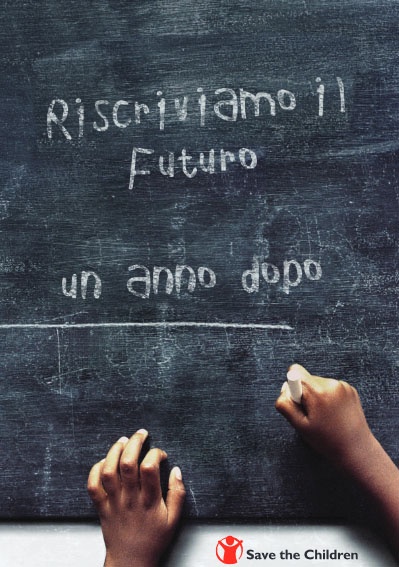
Riscriviamo il Futuro - Un anno dopo
Anno di pubblicazione
2007
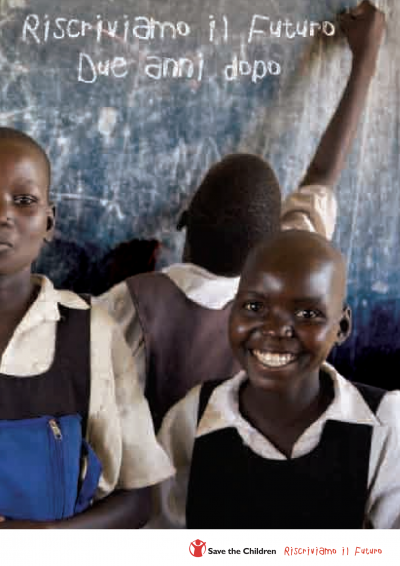
Riscriviamo il futuro - Due anni dopo
Anno di pubblicazione
2008
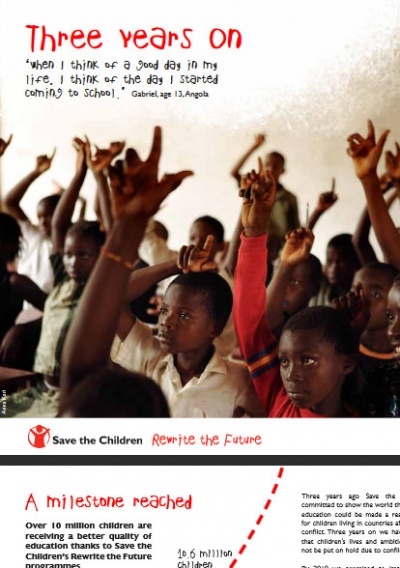
Riscriviamo il Futuro - Tre anni dopo
Anno di pubblicazione
2009
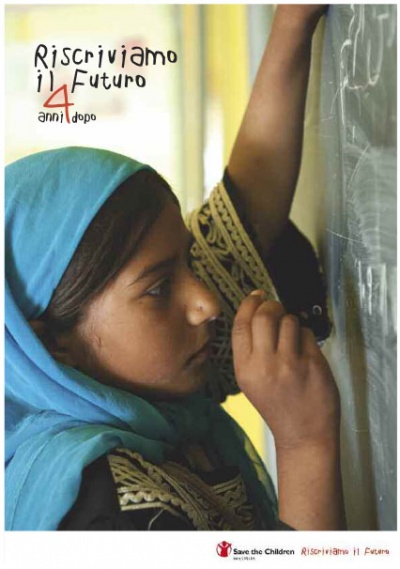
Riscriviamo il Futuro - Quattro anni dopo
Anno di pubblicazione
2010
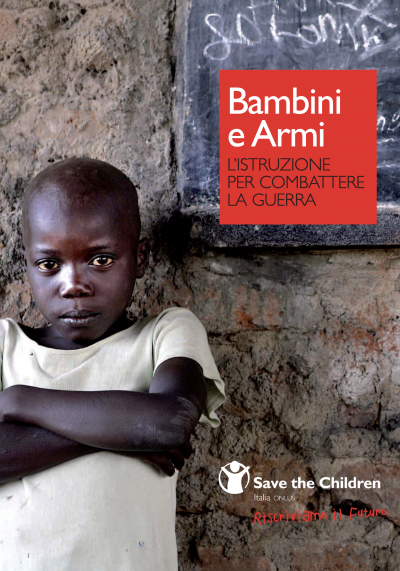
Bambini e armi. L'istruzione per combattere la guerra
Anno di pubblicazione
2008
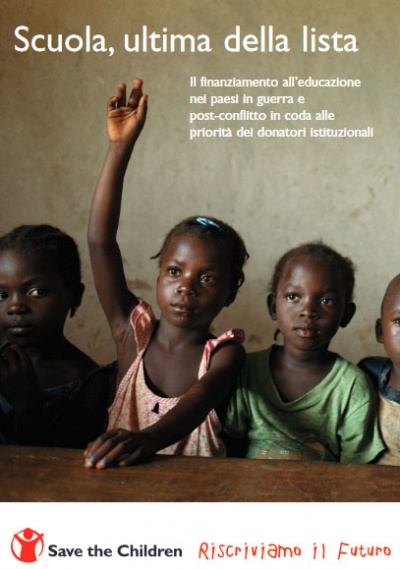
Scuola, ultima della lista
Anno di pubblicazione
2007
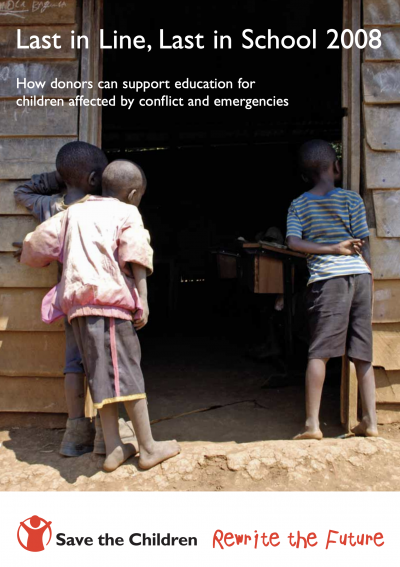
Scuola, ultima della lista
Anno di pubblicazione
2008
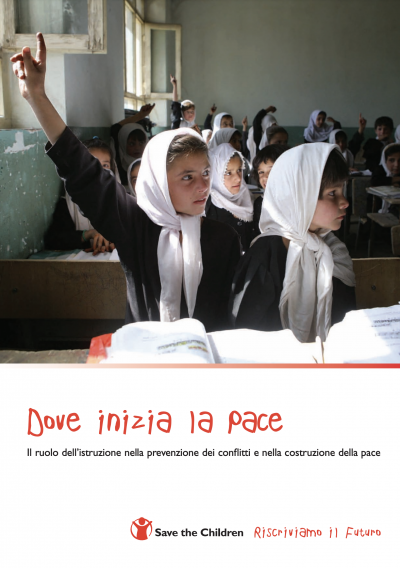
Dove inizia la pace
Anno di pubblicazione
2008
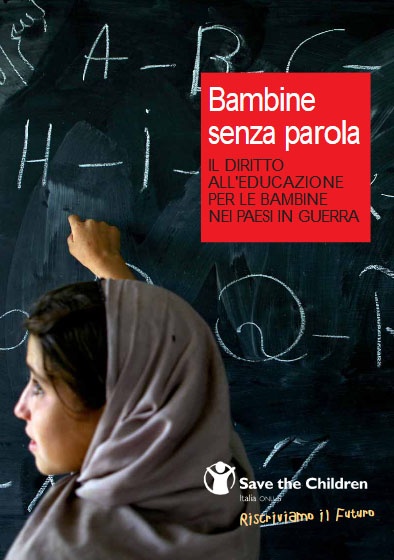
Bambine senza parola. Il diritto all'educazione per le bambine nei paesi in guerra
Anno di pubblicazione
2007